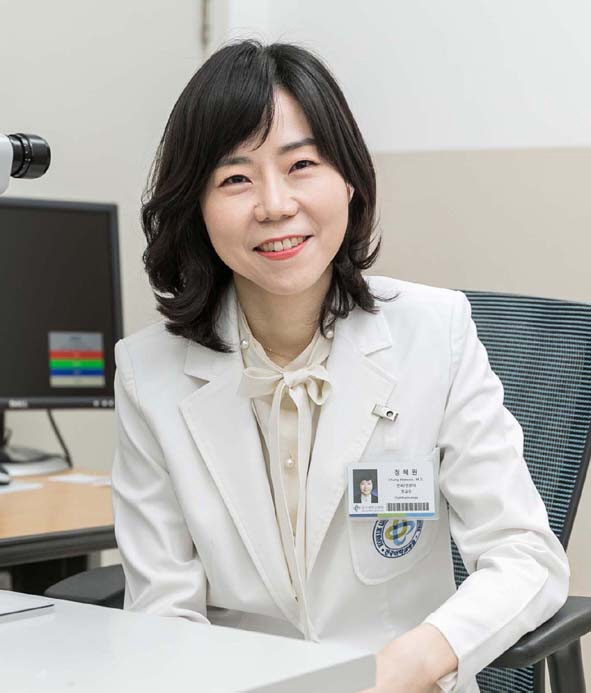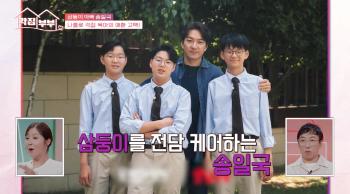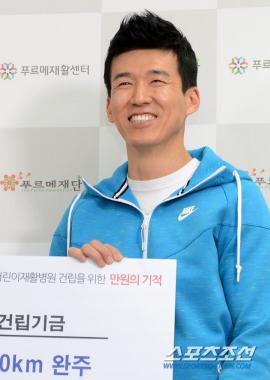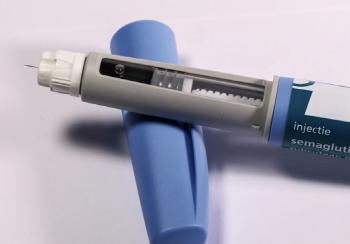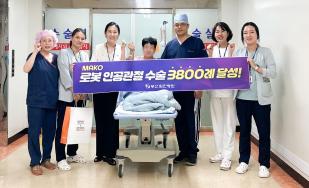Korean researchers begin developing precision gene correction treatment for BET crystal retinopathy...Final Selection of Korean ARPAH Project
Sep 17, 2025
Konkuk University announced that Professor Jeong Hye-won's research team at Konkuk University Hospital was finally selected for the Ministry of Health and Welfare 'Korean Advanced Research Projects Agency for Health (ARPA-H) Project' along with a joint research team at home and abroad.
Through this project, the researchers will develop the world's first treatment for Bieti Crystaline Dystrophy (BCD) precision gene correction.
BCD is a rare hereditary retinal disease that mainly invades retinal pigment epithelium (RPE), which develops with the deposition of yellowish-white crystals in the retina. About 78% of the world's patients are concentrated in East Asia, including Korea, China, and Japan, and the patient group is steadily identified in Korea. The disease usually begins to decline in vision in the 20s and 30s and leads to legal blindness in the 50s and 60s, and the development of treatments is urgent.
The project will be joined by world-class researchers at home and abroad. Konkuk University Medical School will be in charge of the research, and Professor Jeong Hye-won will be in charge of the research. Other domestic researchers include KAIST Professor Kim Jin-soo (Precision Gene Correction, Participating Researcher KAIST Professor Cho Sung-ik), Cha Eui-sook (Genetic Delivery), Chungnam National University Professor Kim Min-kyu (Animal Model, Participating Researcher Konkuk University Professor Song Hyuk), Bundang Seoul National University Hospital Professor Woo Woo-joon (Clinical and Patient Database), Ajou University Professor Choi Jae-myung (Multi-Omix Analysis), and CRONEX Director Choi Ki-myung (SPF Facility and Non-Clinical PRO). Overseas, Kapil Bharti, Scientific Director of the National Institute of Anthropology (NEI/NIH), will participate as a global collaborative researcher.
The research team plans to combine next-generation precision gene correction technology and non-virus carriers to verify the therapeutic effect in mini pig animal models with patient-derived cells and patient mutations and expand them to domestic clinical trials in the future. It also aims to accelerate the commercialization of the treatment through collaboration and licensing out with global pharmaceutical companies and to continue the project with international clinical practice.
Professor Jeong Hye-won said "BCD has no approved treatment so far, and the disease progresses quickly, greatly reducing the quality of life of patients.""This study is a meaningful challenge to build a platform that can be expanded to a variety of genetic eye diseases beyond the development of a single disease treatment. "
The launch briefing session of the project will be held on September 25 at Konkuk University's administrative office, and researchers such as Professor Jeong Hye-won (Konkuk University), Professor Kim Jin-soo (KAIST), Professor Moon Ji-sook (Cha Eui-sook), Professor Kim Min-kyu (Chungnam University), Professor Woo Woo-joon (Bundang Seoul National University Hospital), and Professor Choi Jae-myung (Aju University), President Won Jong-pil of Konkuk University, and Park Mi-sun, head of the K-Health Future Promotion Team of the Korea Health Industry Promotion Agency, will attend to share research directions and cooperation strategies.
Meanwhile, the 'Korean ARPA-H Project' is a large R&D project promoted by the Ministry of Health and Welfare and the K-Health Future Promotion Team of the Korea Health Industry Promotion Agency, and aims to solve national health challenges through scientific challenges and lead to innovative changes in medical and health services. With a total of 14.75 billion won supported over four and a half years, it is expected that Korea will lay an important foothold to strengthen its global leadership in the field of precision treatment for rare genetic diseases.
Through this project, the researchers will develop the world's first treatment for Bieti Crystaline Dystrophy (BCD) precision gene correction.
BCD is a rare hereditary retinal disease that mainly invades retinal pigment epithelium (RPE), which develops with the deposition of yellowish-white crystals in the retina. About 78% of the world's patients are concentrated in East Asia, including Korea, China, and Japan, and the patient group is steadily identified in Korea. The disease usually begins to decline in vision in the 20s and 30s and leads to legal blindness in the 50s and 60s, and the development of treatments is urgent.
The project will be joined by world-class researchers at home and abroad. Konkuk University Medical School will be in charge of the research, and Professor Jeong Hye-won will be in charge of the research. Other domestic researchers include KAIST Professor Kim Jin-soo (Precision Gene Correction, Participating Researcher KAIST Professor Cho Sung-ik), Cha Eui-sook (Genetic Delivery), Chungnam National University Professor Kim Min-kyu (Animal Model, Participating Researcher Konkuk University Professor Song Hyuk), Bundang Seoul National University Hospital Professor Woo Woo-joon (Clinical and Patient Database), Ajou University Professor Choi Jae-myung (Multi-Omix Analysis), and CRONEX Director Choi Ki-myung (SPF Facility and Non-Clinical PRO). Overseas, Kapil Bharti, Scientific Director of the National Institute of Anthropology (NEI/NIH), will participate as a global collaborative researcher.
The research team plans to combine next-generation precision gene correction technology and non-virus carriers to verify the therapeutic effect in mini pig animal models with patient-derived cells and patient mutations and expand them to domestic clinical trials in the future. It also aims to accelerate the commercialization of the treatment through collaboration and licensing out with global pharmaceutical companies and to continue the project with international clinical practice.
|
The launch briefing session of the project will be held on September 25 at Konkuk University's administrative office, and researchers such as Professor Jeong Hye-won (Konkuk University), Professor Kim Jin-soo (KAIST), Professor Moon Ji-sook (Cha Eui-sook), Professor Kim Min-kyu (Chungnam University), Professor Woo Woo-joon (Bundang Seoul National University Hospital), and Professor Choi Jae-myung (Aju University), President Won Jong-pil of Konkuk University, and Park Mi-sun, head of the K-Health Future Promotion Team of the Korea Health Industry Promotion Agency, will attend to share research directions and cooperation strategies.
Meanwhile, the 'Korean ARPA-H Project' is a large R&D project promoted by the Ministry of Health and Welfare and the K-Health Future Promotion Team of the Korea Health Industry Promotion Agency, and aims to solve national health challenges through scientific challenges and lead to innovative changes in medical and health services. With a total of 14.75 billion won supported over four and a half years, it is expected that Korea will lay an important foothold to strengthen its global leadership in the field of precision treatment for rare genetic diseases.
This article was translated by Naver AI translator.
